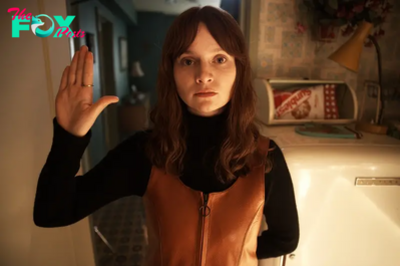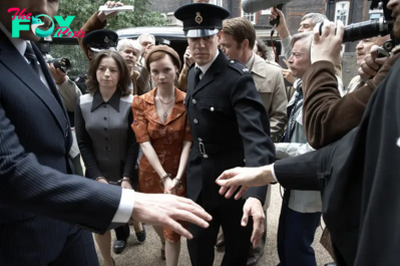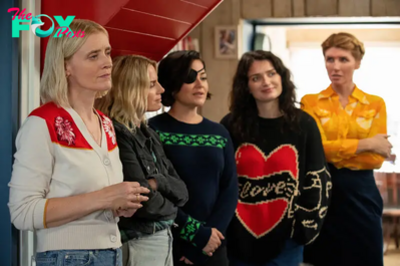Entertainment
The Oscars Were Glorious. But There’s a Storm Brewing in Hollywood
The weeks and months leading up to the Oscars—including the campaigning, the chatter of prognosticators, the rushing to catch up with every nominated picture—are usually a jubilant time. But the storm clouds hovering over this most recent season, which culminated in Sunday night’s efficient and entertaining Oscars broadcast, are about to break, and Hollywood knows it. As viewers, we’re just bystanders, right? Consumers who wait for the “content” to happen. But that line of thinking is also a colossal part of the problem. It’s long past time for all of us to ask for more—even if we’re not quite sure what more is.
Within the past three months, big-ticket directors like Denis Villeneuve—whose Dune: Part Two has dominated the 2024 box office—told TIME: "We’re in a very conservative time; creativity is restricted. Everything’s about Wall Street. What will save cinema is freedom and taking risks. And you feel the audience is excited when they see something they haven’t seen before.” Other hugely popular actors at the top of their Game, like Issa Rae and Dakota Johnson, have lambasted Hollywood executives for their obsession with profits, at the expense of more challenging, individualistic work.
Those same corporate overlords have largely blocked the pipeline of new projects that ostensibly should have begun flowing right after the actors’ and writers’ strikes of last summer: the AMPTP has just begun negotiating with members of both IATSE (which covers a broad range of below-the-line workers) and Hollywood Basic Crafts (which includes the Teamsters), and the possibility of another big strike looms. In their acceptance speeches on Sunday, both Christopher Nolan (whose Oppenheimer took Best Picture) and writer-director Cord Jefferson (who won Best Adapted Screenplay for his movie debut, American Fiction) called on Hollywood to take more risks on individual creative voices. “Instead of making one $200 million movie, try making 20 $10 million movies. Or 50 $4 million movies,” Jefferson suggested.
Read more: The Best, Worst, and Most Memorable Moments of the 2024 Oscars
Hollywood has never truly been the friend of the artist—remember that Katharine Hepburn had to strategize her own comeback after the Independent Theater Owners Association branded her “box office poison” in the late 1930s. But all filMMAkers and performers need money, and while you don’t necessarily need a lot of money to make something great, as Jefferson suggested, you do need dough to make something big, a la Oppenheimer—or, for that matter, Martin Scorsese’s Killers of the Flower Moon, which came up empty on Sunday, though that’s no reflection of the movie’s quality. Both of these movies were conceived and made to seen on the big screen; there's nothing shrunken about their scale, or the passion and energy that went into them.
Oppenheimer was part of the summer two-picture juggernaut affectionately known as Barbenheimer, which by itself should prove to corporate Hollywood that audiences will step out of their comfort zones—in other words, their living rooms—if you give them something original, ambitious and dazzling to watch, instead of just another IP entry. (Admittedly, Greta Gerwig’s Barbie counts as IP, but it’s still unlike any franchise kickoff we’ve ever seen.) And while nearly everyone thought—and many hoped—that Killers of the Flower Moon star Lily Gladstone would win for Best Actress, both her performance and the overall gravity of the picture have been swirling in the conversation for months. That’s at least partly because Apple, which produced the picture, kept it in theaters for months, before releasing it for streaming in January. The chance they took didn’t pay off in Oscar wins, but in the context of what a movie can mean to the public—in terms of making it feel special—it was precisely the right strategy.
Read more: The Zone of Interest Oscar Winner Jonathan Glazer Said What No One Else Dared to Say
It's both depressing and slightly hopeful that a film’s success can hinge on strategy. Those of us who still care deeply about the moviegoing experience—as Christopher “See It Big” Nolan clearly does—have come to look at the streamers as the enemy, though that’s not completely fair. (Nolan has called streaming-only content a "danger," and advocated for the physical release of films.) The former chairman of Netflix Film, Scott Stuber, brought some of the richest moviegoing experiences of the past decade into being, among them Roma and The Irishman. He’s also responsible for The Power of the Dog, Glass Onion: A Knives Out Mystery, Marriage Story, All Quiet on the Western Front, and this year’s Oscar hopeful Maestro, which, like Killers of the Flower Moon, left the ceremony with nothing—but stands, no matter what you think of it, as the kind of ardent, big-swing enterprise that today’s movie moguls should be betting on.
The word is that Stuber—who has since been replaced at Netflix by Lego Movie producer Dan Lin—and Netflix co-CEO Ted Sarandos had a difference of opinion over the importance of giving movies a theatrical release. Stuber’s strategy was also to focus on fewer titles and higher quality, which clearly coNFLicts with the firehose approach most streamers are fixated on. Their aim is to present consumers with plenty of stuff, of variable quality—a bit like what’s happened over the past 25 years with fast fashion, with so much cheap clothing flooding the market that many consumers no longer know what solid construction and materials look like.
Do we really want more stuff, or do we still want movies made with thought and care, pictures that spark new feelings or sensations? EMMA Stone’s Best Actress win may have disappointed many of Lily Gladstone’s fans, but her turn as the Frankencreation Bella Baxter, in Yorgos Lanthimos’ Poor Things, is an astonishing feat of physical performance, as well as a cerebral exploration of the idea of sexual freedom. If that makes Poor Things sound like a heady experiment, it is, sort of—though for a movie of its scale, it has also performed extremely well at the box office, having earned nearly $108 million worldwide.
Read more: Here’s Which Movies All 20 of the Acting Presenters Won Their Oscars For
So as consumers, what is it, exactly, that we want? Do we want more thoughtful movies, made by established filmmakers, that are actually about something (like Oppenheimer or Killers of the Flower Moon)? Do we want more low-cost but energetic projects like American Fiction, which give great performers—like that movie’s star, Jeffrey Wright—the chance to shine? Do we want more oddball successes like Poor Things, which earned a total of four Oscars, including one for Holly Waddington’s gloriously inventive costumes? The answer to all of those questions is Yes—if we care about movies as an art form, we want it all. And streaming services, if they choose to, can still pour money into projects like those. But it's essential to give them a shot in theaters, where they can fulfill every inch of their big-screen potential.
More from TIME
In the years since the onset of the pandemic, I’ve had countless former hardcore moviegoers say to me, as if they’ve somehow made the universe’s greatest discovery, “Why should I go to a smelly old theater, when I can just watch great stuff at home on my big TV?” They’ve bought wholeheartedly into the strategy of the big corporate streamers, without believing they’ve bought into anything—they simply think they’re availing themselves of a valuable service, theirs for the taking at little cost.
But that’s about to change. Now that we’ve become accustomed to a steady stream of product, the streamers have begun to raise their rates. Their commitment to funding big projects by ambitious filMMAkers may be on the wane, too. It’s time for us to decide which side we’re on: the side of those trying to make great movies, or the side of those eager to make money off us in any way possible. Do you want to be on the team of Nolan, Scorsese, Jefferson, and Lanthimos, or do you prefer the nonstop content blast? As Nolan said in his Oscars speech, the movie arts are only a little over 100 years old. “Imagine being there 100 years into painting or theater. We don’t know where this incredible journey is going from here.” But we do know we’re going to need water for that journey. And it’s impossible to drink from a firehose.
-
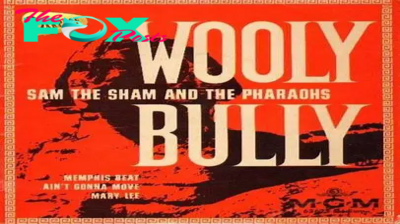
 Entertainment55m ago
Entertainment55m agoAmerica On CoffeeWe’re simply inviting you to take a timeout into the rhythmic ambiance of our breakfast, brunch and/or espresso picks. We’re pleased everytime you cease by.SAM THE SHAM AND THE PHAROAHS – WOOLY BULLY
-
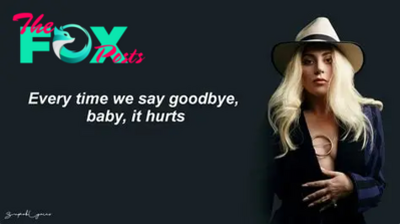
 Entertainment11h ago
Entertainment11h agoAmerica On CoffeeWe’re simply inviting you to take a timeout into the rhythmic ambiance of our breakfast, brunch and/or espresso alternatives. We’re comfortable everytime you cease by.“All the time Keep in mind Us This Manner” Woman Gaga
-
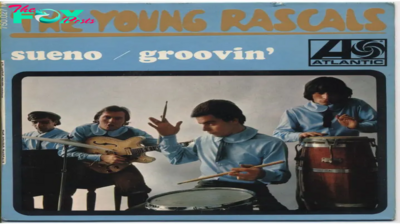
 Entertainment16h ago
Entertainment16h agoAmerica On CoffeeWe’re simply inviting you to take a timeout into the rhythmic ambiance of our breakfast, brunch and/or espresso alternatives. We’re blissful everytime you cease by.“Groovin’ – The Younger Rascals”
-

 Entertainment21h ago
Entertainment21h agoAmerica On CoffeeWe’re simply inviting you to take a timeout into the rhythmic ambiance of our breakfast, brunch and/or espresso choices. We’re joyful everytime you cease by.“BLONDIE – RAPTURE”
-

 Entertainment1d ago
Entertainment1d agoSade “Paradise”
-

 Entertainment1d ago
Entertainment1d agoPHOTO GALLERY: W.A.S.P. with Armored Saint – Historical past Evening Membership – Toronto, Ontario – November 11, 2024
-

 Entertainment1d ago
Entertainment1d agoAmerica On CoffeeWe’re simply inviting you to take a timeout into the rhythmic ambiance of our breakfast, brunch and/or espresso alternatives. We’re completely satisfied everytime you cease by.“All the time Bear in mind Us This Method” Woman Gaga
-
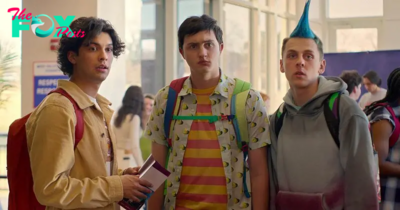
 Entertainment1d ago
Entertainment1d agoWill There Be a ‘Cobra Kai’ Season 7? Why the Netflix Series Was Canceled: ‘End It on Our Terms’


